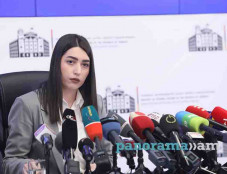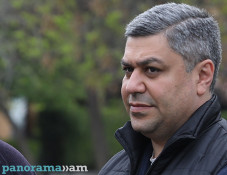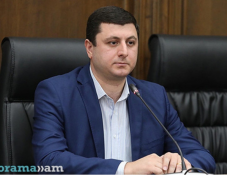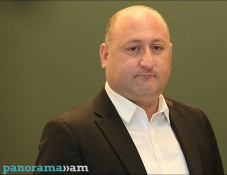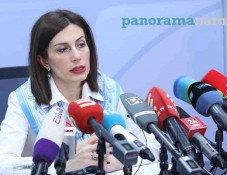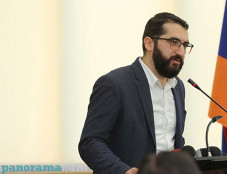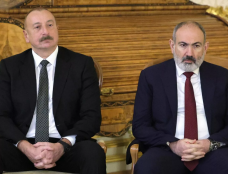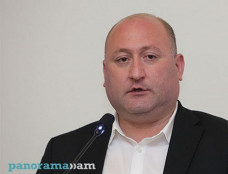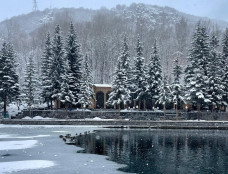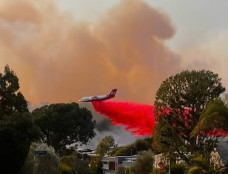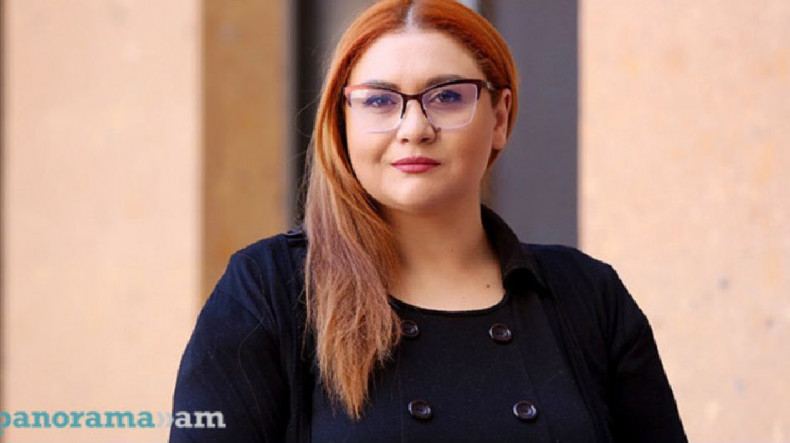
'New' Britain, 'Artsakhtsi' Ruben Vardanian and 'old' Azerbaijan in interview with Angela Elibegova
After the death of Queen Elizabeth II, King Charles III, the now former Prince of Wales, became the new monarch of the United Kingdom of Great Britain and Northern Ireland.
Panorama.am reached out to South Caucasus geopolitics expert Angela Elibegova for comments on relations between Azerbaijan and Britain, as well as the latest developments around Artsakh.
Panorama.am: How could the proclamation of the new British king affect relations between London and Baku given the British oil and gas projects in Azerbaijan?
Angela Elibegova: The British media reports and the investigative international organizations revealed the close friendship of the financial and political elites of Azerbaijan with both King Charles and Prince Andrew several years ago. They have quite serious financial ties with the Azerbaijani elites.
Prince Andrew also very often enjoys visiting Baku. This was covered in detail in the international media. The Azerbaijani capital, the children of oligarchs, including the family of Azerbaijani President Ilham Aliyev, have large financial and economic business projects in London, including quite expensive real estate, houses, which often the British media reflects on. In other words, the financial and economic ties between the British and Azerbaijani elites are quite strong.
Panorama.am: How has Britain's economic interest affected the country’s stance on the Artsakh issue?
Angela Elibegova: As for relations between Britain and Azerbaijan, in terms of the interests of British oil and gas projects, I must say that they definitely affect London's interests in the region. In 1994, British Petroleum (BP) entered the Azerbaijani market and due to the signing of the “contract of the century” the BP-led consortium got big opportunities to take a leading position in the Azerbaijani oil and gas industry and has no plans to leave it in the next decade.
BP's $100-billion worth investment in Azerbaijan's oil and gas sector also means they have ensured that Azerbaijani oil and gas pipelines are not damaged during wars, that no damages are inflicted on the oil and gas sector of Azerbaijan during the hostilities. European institutions, especially Great Britain, were watching closely to ensure that the war did not harm their economic interests.
Panorama.am: In the context of developments around Artsakh, I would also like you to comment on now former Russian citizen Ruben Vardanyan’s sudden decision to move to Artsakh.
Angela Elibegova: With regard to Ruben Vardanyan's move to Artsakh, I must say that the remarkable thing for me here was his statement about the ways of coexistence and dialogue with the Azerbaijani society. I think that we should wary of such statements and plans, because we all know that Armenianophobia as a state-run policy in Azerbaijan has not only not ended after the war, but on the contrary, it has further stepped up. The enemy continues to prepare for war, educating its generations in an atmosphere of hatred towards Armenians.
In this sense, it is very dangerous for us: if we constantly propagate peaceful coexistence, while the enemy continues to prepare for new aggression and attack, it can blunt our vigilance and create illusions that are far from reality. Therefore, I do not consider any attempts of dialogue and peaceful coexistence realistic without a serious denazification process in Azerbaijan.
Interview by A. Vardanyan
Newsfeed
Videos





